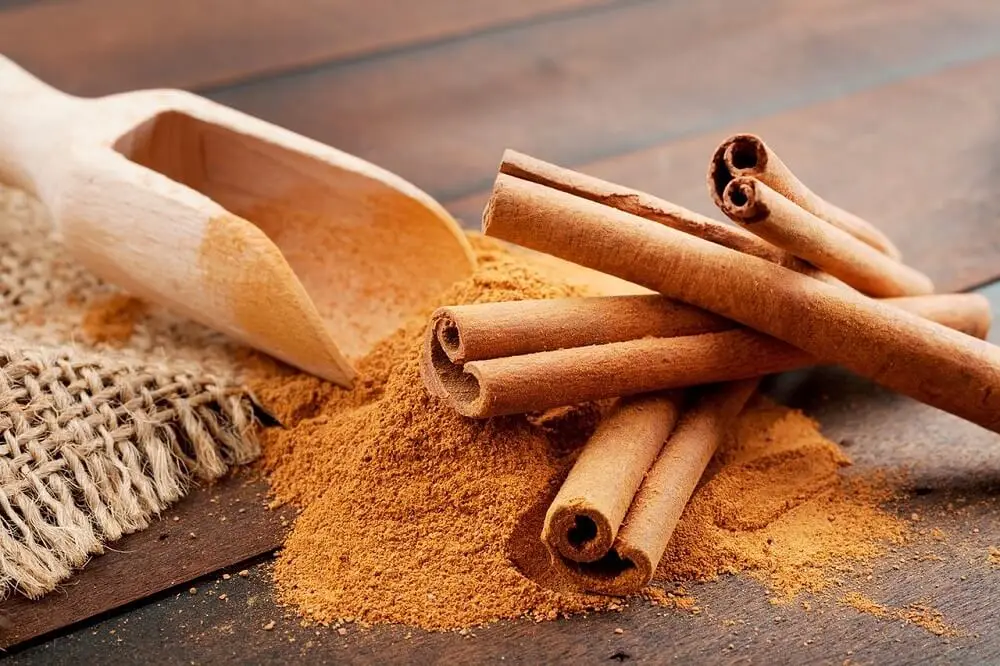The 9 Best Home Remedies for a Lack of Appetite


Reviewed and approved by the pedagogue in physical education and nutritionist Elisa Morales Lupayante
A lack of appetite or poor appetite is a disorder that, if not treated in time, can cause serious health consequences. It is known to be very common in the elderly, especially those who live in nursing homes or are hospitalized. However, it can affect any age range. Today, we’re going to show you the best home remedies to whet your appetite.
A lack of appetite
As experts point out, the sensation of appetite is regulated by the frontal lobe, the cortico-limbic system, and the hypothalamus, as well as messengers such as serotonin and leptin.
Most cases of lack of appetite are transient, either due to stress, nerves, or some momentary disorder that makes the desire to eat disappear.
When this happens sporadically, it can affect energy levels, mood, and even the ability to perform daily tasks. But in general, it can be solved by healing its cause or waiting for it to disappear.
On other occasions, its reason may be the existence of a more serious or persistent disease or health problem. Some of the cases in which this can happen are cancer, depression, hypothyroidism, or chronic obstructive pulmonary disease.
In these circumstances, there’s concern about the possible lack of nutrients and weight loss that a long-term lack of appetite can lead to. That’s why, before it generates complications, it’s essential to pay attention to it. Discover below some alternatives that help to stimulate hunger in this article.
Remedies for a lack of appetite
When you don’t really feel like eating, you can apply some remedies and home tricks to help your body to digest, arouse your appetite, and get more nutritious meals that help provide you with sufficient energy.
1. Make and eat smaller meals

Although it may seem like a contradiction, when a person has little appetite and little desire to eat, it’s not advisable to serve very loaded plates. This can create a rejection from a good beginning and hinder the ingestion.
Also, eating little and often facilitates digestion and favors being more hungry after a while, which can increase the body’s total of energy at the end of the day.
In these meals, it’s important to prioritize foods like carbohydrates, olive oil, blue fish, dry fruits and nuts, the cheese, legumes, and eggs.
2. Prepare showy dishes
If you’re not hungry, it may seem like a big effort to cook complicated recipes. However, the presentation of your food should not be forgotten, since this is very important to stimulate the gastric juices and to whet the appetite.
Some ideas to achieve this are the following:
- Have different colored foods on your plate.
- Place your food in an eye-catching way.
- Use herbs and spices to add taste and variety to each meal.
- Dress with extra virgin olive oil: this provides calories and enhances the flavor of all the ingredients.
We think you may also enjoy reading this article: When Is the Right Time to Eat?
3. Plan your meals

Hunger is always one of the main indicators that the body needs energy. But when the appetite fails for whatever reason, it may not be advisable to rely on it.
Thus, it’s advisable to think about your daily meals ahead of time, have them ready if necessary, and avoid skipping any. The same goes for mid-morning and mid-afternoon snacks, which can be brought from home if necessary.
4. Create a positive atmosphere if you have a lack of appetite
Eating in a pleasant situation can help to increase your appetite and gradually encourage you to eat more food.
To do this, it’s a good idea to set the table, serve food on plates, play music, or eat in company.
Some data show that eating meals with friends or watching TV diverts attention from the food consumed and can affect your intake and digestion.
5. Exercise
Doing physical activity or practicing a sport involves an expenditure of energy that the body must recover. This is why most of the time it’s usually accompanied by an increase in appetite.
It doesn’t matter if the intensity isn’t high; you can start with simple walks if the current level of activity is low.
Also, don’t forget that exercise is very positive to improve anxiety and stress. If these are the reasons for the lack of appetite ,the benefits will be even greater.
6. Keep an eye on your fiber consumption
Nowadays, it’s well-known that this nutrient exerts positive effects on the body, but it’s also one of those that facilitate the sensation of fullness and satiety.
For this reason, while the lack of appetite and the problems with eating last, it may be preferable to reduce its presence a little in your meals.
To do this, you can implement some of these changes:
- Choose refined grains instead of whole grains (bread, rice, pasta, etc).
- Peel your fruit.
- Choose cooked vegetables and combine them with potatoes or sweet potatoes.
- Prepare salads with pasta, rice, corn, tuna, or avocado, and avoid large portions of lettuce, spinach, carrots, etc.
- Reduce the portions of legumes and increase the presence of eggs or fish.
7. Choosing your favorite foods for a lack of appetite
Variety in the diet is important, but when there are problems eating, it may not be the best time to force yourself to introduce foods that are not so appetizing.
Sitting in front of a plate and knowing that you’re going to enjoy eating what’s on it can make you eat more. To ensure that these foods are available, it’s preferable to plan and always have them on hand.
The only exception to this remedy is not to abuse fast food, sweets, or ready meals, even if these are the most appetizing. In these cases, you should look for ways to prepare healthy and nutritious alternatives at home.
8. Try a laurel remedy
In natural medicine, laurel has been highlighted as a digestive tonic that’s recommended to control excess acidity and irritation.
These properties are beneficial for the treatment of poor appetite. By soothing stomach discomfort, they restore the desire to eat.
Ingredients
- 2 or 3 bay (laurel) leaves
- 1 cup of water (250 milliliters)
Preparation
- First, add the bay leaves to a cup of water and bring it to a boil.
- When it comes to a boil, remove it from the heat, cover it, and wait for it to steep for 5 to 10 minutes.
How to take it
- Drink a cup of infusion 30 minutes before each meal.
Like this article? You may also like to read: Hyporexia or Lack of Appetite
9. Peppermint, chamomile, and lemon balm

The digestive and sedative properties of the plants that are combined in this infusion are useful to whet the appetite. This is especially the case when its absence is related to episodes of stress and nervousness.
Ingredients
- 2 cups of water (250 milliliters)
- ½ tablespoon of mint (5 grams)
- 1 teaspoon of chamomile (5 grams)
- 1 teaspoon of lemon balm (5 grams)
Preparation
- To begin, put the cups of water in a pot and start boiling.
- When they reach boiling point, add the plants, reduce the heat, and leave them to steep for 3 minutes.
- Then turn off the heat, cover the pot and let it steep for 10 to 15 minutes more.
- After this time, when the infusion is lukewarm, strain it and drink it.
How to take it
- Drink a cup of infusion on an empty stomach and repeat its consumption before lunch.
When to consult a doctor for a lack of appetite
If your lack of appetite lasts only a few days, medical intervention is not necessary. However, if the symptom persists, even after trying the above-mentioned remedies, it’s necessary to seek professional assistance for proper treatment.
Go to the doctor if you present the following circumstances:
- Noticeable weight loss
- Weakness and fatigue
- Anxiety and depression
- Anorexia or bulimia
- Intake of medications that could suppress appetite
Put into practice these remedies for a lack of appetite
Plan ahead, choose nutritious food, eat more often, or try some herbal teas. All these small routines can help to whet your appetite.
If the appetite loss is temporary, it may improve in a few days, especially if the cause disappears. Otherwise, it’s preferable to talk to your doctor to assess the situation and find the right treatment.
All cited sources were thoroughly reviewed by our team to ensure their quality, reliability, currency, and validity. The bibliography of this article was considered reliable and of academic or scientific accuracy.
- Berendika M, Domjanić Drozdek S, Odeh D, Oršolić N, Dragičević P, Sokolović M, Garofulić IE, Đikić D, Jurčević IL. Beneficial Effects of Laurel (Laurus nobilis L.) and Myrtle (Myrtus communis L.) Extract on Rat Health. Molecules. 2022 Jan 17;27(2):581.
- Dorling J, Broom DR, Burns SF, Clayton DJ, Deighton K, James LJ, King JA, Miyashita M, Thackray AE, Batterham RL, Stensel DJ. Acute and Chronic Effects of Exercise on Appetite, Energy Intake, and Appetite-Related Hormones: The Modulating Effect of Adiposity, Sex, and Habitual Physical Activity. Nutrients. 2018 Aug 22;10(9):1140.
- Koyama KI, Amitani H, Adachi R, Morimoto T, Kido M, Taruno Y, Ogata K, Amitani M, Asakawa A, Inui A. Good appearance of food gives an appetizing impression and increases cerebral blood flow of frontal pole in healthy subjects. Int J Food Sci Nutr. 2016;67(1):35-9.
- Manoogian ENC, Chaix A, Panda S. When to Eat: The Importance of Eating Patterns in Health and Disease. J Biol Rhythms. 2019 Dec;34(6):579-581.
- Patel KA, Schlundt DG. Impact of moods and social context on eating behavior. Appetite. 2001 Apr;36(2):111-8.
- Parmar RM, Can AS. Physiology, Appetite And Weight Regulation. In: StatPearls [Internet]. Treasure Island (FL): StatPearls Publishing; 2022 Jan.
- Pilgrim AL, Robinson SM, Sayer AA, Roberts HC. An overview of appetite decline in older people. Nurs Older People. 2015 Jun;27(5):29-35.
- Salleh SN, Fairus AAH, Zahary MN, Bhaskar Raj N, Mhd Jalil AM. Unravelling the Effects of Soluble Dietary Fibre Supplementation on Energy Intake and Perceived Satiety in Healthy Adults: Evidence from Systematic Review and Meta-Analysis of Randomised-Controlled Trials. Foods. 2019 Jan 6;8(1):15.
This text is provided for informational purposes only and does not replace consultation with a professional. If in doubt, consult your specialist.








